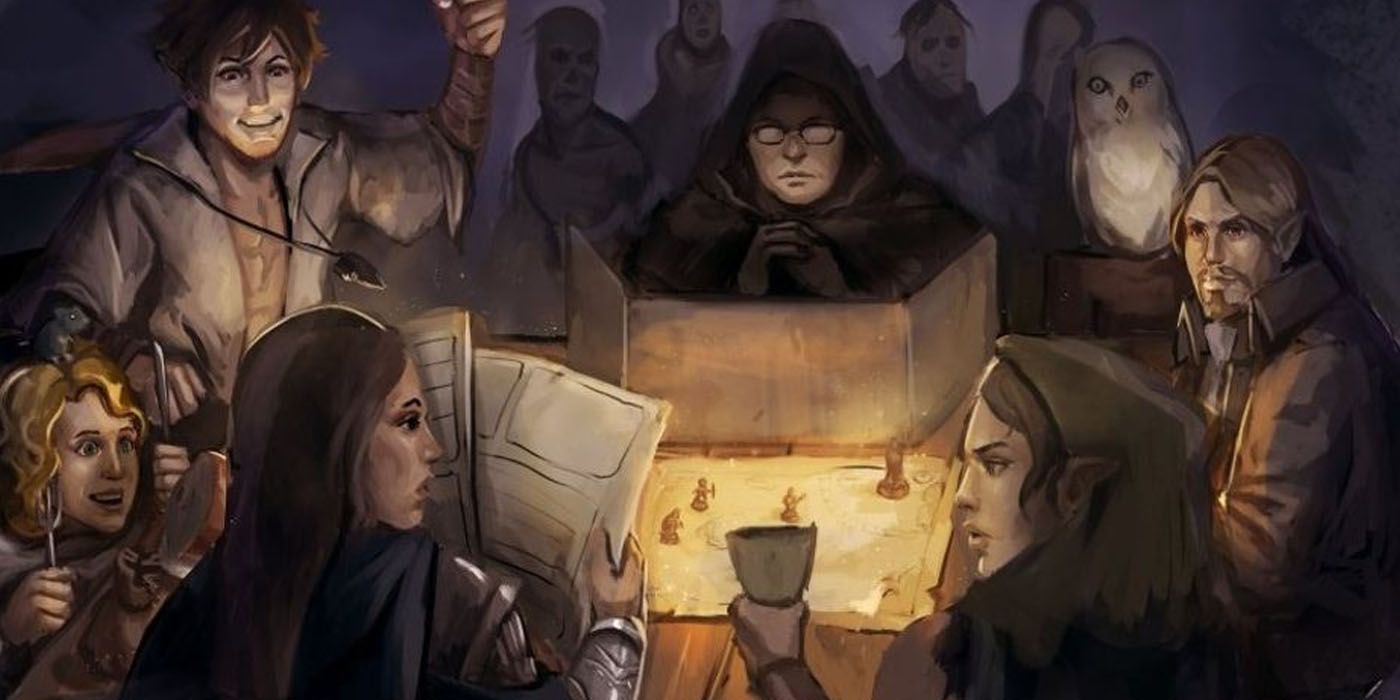In the vast and ever-growing world of Dungeons & Dragons playshows, Children of Éarte is an underrated gem. Led by Dungeon Master and Daredevil star Deborah Ann Woll, the show tells the story of five seemingly normal humans who, after boarding a mysterious train, are taken on a fantastical adventure that none of them could have previously imagined.
Children of Éarte has a lot of fascinating and fun content that's sure to inspire other DMs, particularly those interested in running campaigns set in the modern day. However, the show's most interesting innovation is an easy-to-implement house rule that could help any campaign combat an age-old problem in the tabletop-RPG space: metagaming.
What Is Metagaming in D&D?
Pretty much every D&D campaign runs into the issue of metagaming at some point. Essentially, metagaming is when players use external knowledge to determine their character's actions, particularly when said player character shouldn't know the information in question. This can be as innocuous as a veteran player choosing to not use fire attacks against a red dragon despite their current character not knowing that the creatures are immune to that element.
Some metagaming is all but inevitable; after all, players are aware that they are part of a game in a way their characters aren't. In the real world, a person is unlikely to enter a room and immediately start opening up drawers trying to find something important, but such behavior is common (sometimes necessary) in D&D to keep the story moving. However, metagaming becomes a bigger issue when players adjust their behavior in ways that breaks immersion or interfere with role-playing.
One common cause of metagaming has to do with skill checks, especially Perception checks. Because players understand that a low roll means they are likely to be deceived or to miss a crucial piece of information, they may choose their next action with that low roll in mind. For instance, a player who checks a hallway for traps and rolls a three will likely proceed under the assumption that there are traps, undermining the impact of the low roll.
How Children of Éarte Addresses Metagaming with a House Rule
Children of Éarte's response to this problem is simple: If a player is concerned that knowing what they roll on a skill check will influence their response, they can tell the DM their modifier and have Woll roll the d20 for them. From there, she'll tell the player what they see or learn without revealing the roll itself. By withholding that information, the players are unable to make any inferences based on what they rolled; they simply know what their character would know.
This house rule can be easily applied to any D&D game, and it could be particularly helpful to newer players who may not even realize they are metagaming. While having the DM roll does take some power away from the players themselves, it's up to the player whether or not to take advantage of it. Those who feel confident in their ability to separate their knowledge and their players (or those who simply enjoy rolling dice themselves) don't have to partake. While incredibly simple, this house rule is a brilliant way to combat a common yet pervasive problem.



